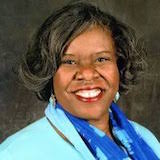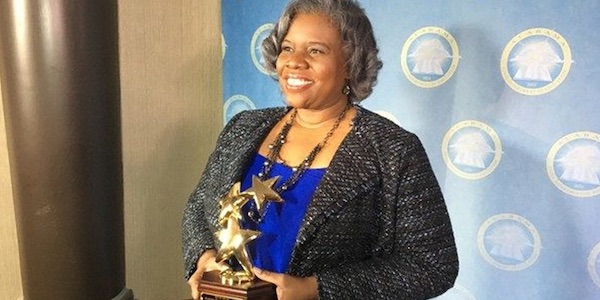 By Zestlan Simmons
By Zestlan Simmons
Alabama Teacher of the Year, 2018-19
“I don’t understand. I have always made an ‘A’ in English.” These constant cries came from my students during the year I implemented the Alabama College and Career Ready Standards (ACCR).
In addition, parent/teacher conferences would be filled with questions and closing arguments defending their student’s competency. It was in these conferences I would have to reassure parents that the lowered grade was not a verdict on their parenting or an indication of their student’s intelligence or ability.
Indeed these were hardworking students, and I had confidence that the shift to include more evidence-based writing and complex informational text in the curriculum would continue to raise the level of rigor in every class and ensure students’ preparation for college or any career.
The standards take us deeper into learning
These ACCR standards challenge students to reach beyond the surface of rote memory and fact recitation into more problem solving and analytical thinking. Students utilize skills that not only require that they know which response to choose but also the logic behind that response.
Furthermore, the standards ensure that students are able to develop and enhance essential thinking skills for 21st century careers. In his book, Most Likely to Succeed: Preparing Our Kids for the Innovation Era, Tony Wagner states:
“Now, adults need to be able to ask great questions, critically analyze information, form independent opinions, collaborate, and communicate effectively. These are the skills essential for both career and citizenship.”
As our students master these standards, they emerge as informed decision makers and creative problem solvers.
Understandably, the mastery of new, more rigorous standards has been an extra challenge for learners in secondary schools. Thanks to a steady process of guided practice and constant feedback, many students are turning the corner on mastering the ability to respond to and engage in ways that are effective in conveying their unique perspective to others. These students have become informed citizens who are taking their places in their communities.

One student’s story
At one time, I taught a student who became extremely frustrated because she was not able to master analyzing text for structure and purpose as fast as she had previously mastered earlier and less demanding standards.
By using various instructional strategies and giving her immediate feedback, she was not only able to identify and explain the way structure and purpose functioned in a text, but she was also able to use the same strategies in her own style of writing.
Later, she utilized those skills, with which she at first floundered, to write a letter to the county commission to ask for support for arts programs in her school. She was able to articulate her concerns with precision and clarity to advocate for herself and garner the support of the community.
Parents and community members see the difference
Now, the parent/teacher conferences and community conversations I have no longer include worries about the demise of their students’ academic future. Instead, we celebrate together the new-found skills with which the students have been equipped and empowered to use.
These ACCR standards are preparing students for career success as lifelong learners and creative innovators so that they may flourish and contribute, wherever they go.
Zestlan Simmons, M.Ed. teaches advanced placement English at Booker T. Washington Magnet High School in Montgomery and serves as the 2018-19 Alabama Teacher of the Year. Simmons is a National Board Certified Teacher and has also been recognized by the National Math and Science Initiative as the AP English Teacher of the Year for increasing the AP Language exam scores for minority students by 50%.
Her Teacher of the Year biography at the Council of Chief State School Officers website observes that “her passion for student achievement and arts education inspired her to return to Booker T. Washington (BTW) Magnet where she once benefited from an arts education through the Carver Creative and Performing Arts Program (now BTW Magnet).” The biography also notes Simmons’ successful work with students at a “high alert” Title I school.

0 Comments on "Teacher Voices: “Our Standards Are Helping Students Flourish and Contribute Wherever They Go.”"